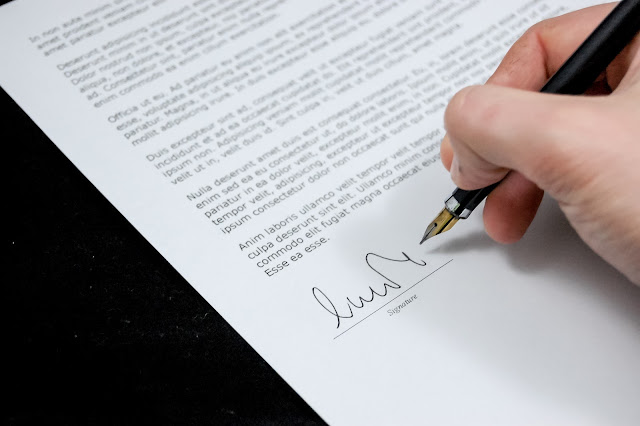Apostille Authentication in Canada: Navigating Difficulties
When using Canadian documents abroad, you may need to have them apostilled. An apostille is a certification used to verify a document's authenticity. It is recognized by countries that are part of the Hague Convention, which includes many nations worldwide. However, getting an apostille in Canada can take time and effort.
In this article, we'll look at what an apostille is, how it works in Canada, and what difficulties you may encounter when getting your documents apostilled.
What is Apostille?
You may require an Apostille Canada certification if you need to use Canadian documents in another country. An apostille is a certification that verifies the authenticity of public documents for use in foreign countries. The issuing government, in this case, Canada, certifies the document, and it is recognized by other countries that are part of the Hague Convention. The Hague Convention was signed in 1961 to standardize the authentication process and simplify using documents abroad. Public documents requiring an apostille include birth certificates, marriage certificates, and court documents. Obtaining an apostille is essential if you plan to use Canadian documents abroad.
How Does Apostille Work in Canada?
In Canada, apostilles are issued by the Department of Foreign Affairs and International Trade (DFAIT). This department is responsible for verifying the authenticity of Canadian documents intended for use abroad.
You need to follow a specific process to get an apostille in Canada. This process can vary depending on your document type and the country where you plan to use it. Nonetheless, as a rule, the procedure comprises the subsequent actions:
Obtain a certified copy of your document. This can be done by contacting the authority that issued the original document.
Get the document notarized. This involves having a notary public certify that the document is a true and accurate original copy.
Has the notarized document been authenticated? This can be done by contacting the appropriate provincial or territorial authority.
Submit the authenticated document to DFAIT for apostille.
Pay the fee and wait for the apostille to be issued.
Getting an apostille in Canada can be pretty complex. It involves several steps, and it can take some time to complete. In addition, there are several difficulties that you may encounter along the way.
What are the Difficulties of Apostille in Canada?
Lack of Consistency
One of the most severe difficulties in getting an apostille in Canada is the need for more consistency. Because the process can vary depending on the type of document and the country where it will be used, it can take a lot of work to know precisely what steps you need to take.
In addition, the process can differ depending on the province or territory where the document was issued. This can lead to confusion and frustration for those trying to get their documents apostilled.
Time-consuming Process
Another area for improvement in getting an apostille in Canada is that it can be time-consuming. Because several steps are involved, it can take several weeks or even months to complete.
This can be a problem if you need your document apostille quickly. For example, if you are trying to get a work visa in another country, you may need to provide an apostille document as part of your application. If the process takes less time, it could delay your application and cause you to miss out on job opportunities.
Cost
The cost of getting an apostille in Canada can also be a difficulty. The procedure is not only lengthy but may also incur a considerable cost. In addition to obtaining certified copies and notarizations, fees are associated with getting the document authenticated and obtaining the apostille from DFAIT.
The fees can vary depending on the document type and the country where it will be used. For example, a birth certificate apostille fee for use in the United States is CAD 50. The fee for a criminal record check apostille in China is CAD 199.
These fees can add up quickly, especially if you need to apostille multiple documents. This can make the process unaffordable for some people.
Language Barriers
Another area for improvement in getting an apostille in Canada is the language barrier. If you need to get a document apostilled in a non-English-speaking country, you may need to have it translated into the appropriate language.
This can add an extra step to the process and be expensive. You may need to hire a professional translator to ensure that the translation is accurate and meets the requirements of the country where the document will be used.
Limited Access to DFAIT Services
Finally, another difficulty of getting an apostille in Canada is the limited access to DFAIT services. Currently, DFAIT only offers apostille services at its office in Ottawa. This can be a problem for people living outside the Ottawa area and needing to get their documents apostilled.
In addition, DFAIT does not offer same-day or expedited services. This means that even if you live in the Ottawa area, you may still need to wait several days or weeks to get your document apostilled.
Conclusion
Getting an apostille in Canada can be a complicated process that comes with its own set of difficulties. Lack of consistency in the process, the time-consuming process, cost, language barriers, and limited access to DFAIT services are all potential obstacles you may encounter. However, with careful planning and preparation, navigating the apostille process successfully is possible. By understanding the requirements and taking the necessary steps, you can ensure your documents are authenticated and ready for use abroad. If you need assistance with the apostille process, consider contacting the experts at Legalization Service Centre Canada for guidance and support.




Comments
Post a Comment